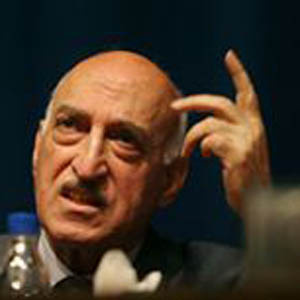No Smell of Change
Comment by Davoud Hermidas Bavand on Larijani and Biden’s speeches in Munich

Speaking in Munich Security Conference, U.S. Vice President Joe Biden stated that Iran may either continue its current course and face pressure or abandon its nuclear program and receive incentives. Comment by Davoud Hermidas Bavand, international affairs expert:
In Munich, Iran’s Parliamentary Spokesman, Mr. Larijani, pointed to the history of Iran-U.S. relations before the [Islamic] revolution and their post-revolution tensions. However, I think the climate has changed and talking of events such as the coup against Dr. Mosaddeq has no relevance. Larijani also criticized United States’ current measures.
Such remarks do not imply any moderation and change at all. Biden also repeated his country’s routine policies. As he stated, Iran should comply with UNSC resolutions to receive new incentives.
However, if Iran and United States intend to reach an agreement they should modify their stances. Obviously nothing will happen if both sides stand firm on their present position. If West attempts to expand the sanctions against Iran then speaking of a new atmosphere is meaningless. Neither Biden’s speech nor Larijani’s were promising and showed no signs of a new era of relations.
United States should be the initiator
Americans have talk of unconditional negotiations. This is a relative moderation per se. Iran should accordingly modify its position if it’s serious for unconditional negotiations. Tehran has stated that there is no way it would deal on nuclear technology and suspension of uranium enrichment. This is the first obstacle against unconditional talks.
Iran should not persist on its stance when United States is ready to start talks without any preconditions. This would freeze the talks at the very first point. Washington has talked of an extended hand towards an unclenched fist. This was supposed to change the conditions, but what Larijani and Biden said in Munich didn’t imply so.
In Munich, Iran’s Parliamentary Spokesman, Mr. Larijani, pointed to the history of Iran-U.S. relations before the [Islamic] revolution and their post-revolution tensions. However, I think the climate has changed and talking of events such as the coup against Dr. Mosaddeq has no relevance. Larijani also criticized United States’ current measures.
Such remarks do not imply any moderation and change at all. Biden also repeated his country’s routine policies. As he stated, Iran should comply with UNSC resolutions to receive new incentives.
However, if Iran and United States intend to reach an agreement they should modify their stances. Obviously nothing will happen if both sides stand firm on their present position. If West attempts to expand the sanctions against Iran then speaking of a new atmosphere is meaningless. Neither Biden’s speech nor Larijani’s were promising and showed no signs of a new era of relations.
United States should be the initiator
Americans have talk of unconditional negotiations. This is a relative moderation per se. Iran should accordingly modify its position if it’s serious for unconditional negotiations. Tehran has stated that there is no way it would deal on nuclear technology and suspension of uranium enrichment. This is the first obstacle against unconditional talks.
Iran should not persist on its stance when United States is ready to start talks without any preconditions. This would freeze the talks at the very first point. Washington has talked of an extended hand towards an unclenched fist. This was supposed to change the conditions, but what Larijani and Biden said in Munich didn’t imply so.

